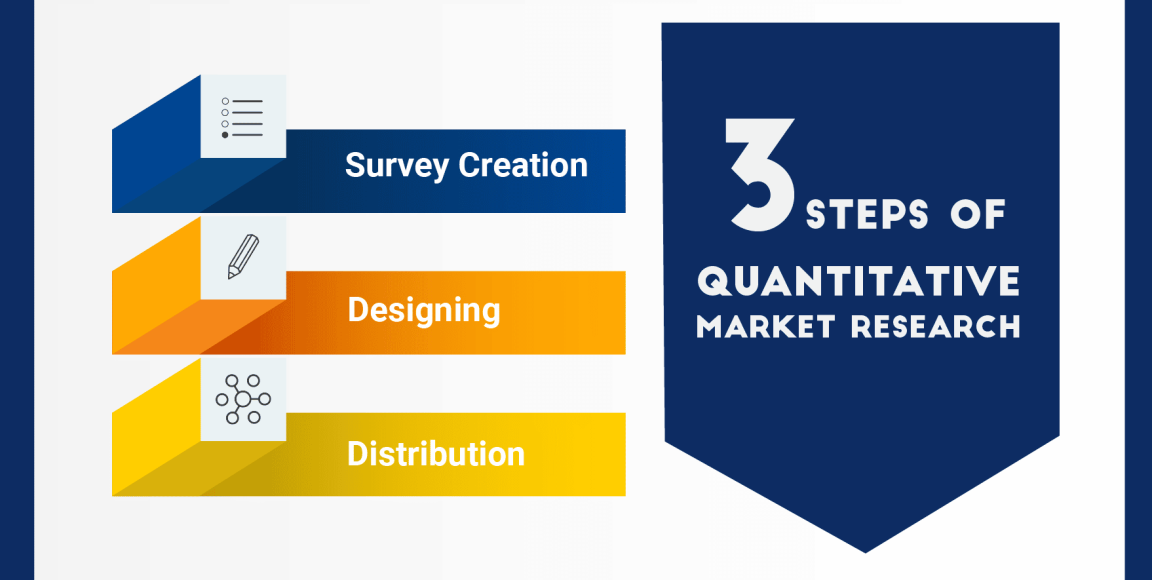In the contemporary business landscape, where decisions hinge on data and insights, the significance of quantitative market research cannot be overstated. Enterprises today operate in a dynamic and ever-changing market scenario, making it imperative to accurately comprehend consumer behaviours, preferences, and trends. This is where quantitative consumer research comes into play, offering a potent tool to decode the intricacies of consumer behaviour and guide strategic decisions. This article will delve into the importance of quantitative consumer studies and explore how it empowers businesses to maintain a competitive edge.
Understanding Quantitative Consumer Insights
Quantitative customer research involves collecting and analysing numerical data to draw statistically sound conclusions about consumer behaviour, preferences, and attitudes. This approach relies on structured surveys, questionnaires, and experiments, yielding data that can be quantified and statistically evaluated. Unlike qualitative research, which aims to uncover underlying motivations and emotions, quantitative research focuses on measurable patterns and trends. It provides a solid foundation for making data-driven decisions by offering insights grounded in numbers and statistics.
Revealing Consumer Insights
The connection between quantitative market research and astute decision-making is undeniable. By gathering data from a representative sample of consumers, businesses gain access to a wealth of information that can guide their strategies. Quantitative research enables businesses to identify trends, understand correlations, and predict future behaviours. Whether pinpointing demographic segments with the highest demand or discerning the impact of marketing campaigns, quantitative research offers a comprehensive view of the consumer landscape.
Precision in Decision-Making
One of the most significant advantages of quantitative consumer-based research is its ability to provide precise and reliable insights. The data collected through structured surveys, and experiments can undergo rigorous statistical analysis, resulting in statistically significant and actionable insights. Businesses can confidently base their decisions on these findings, knowing that the conclusions drawn are not mere conjectures but are backed by concrete numerical evidence. This precision minimises the risk of making ill-informed choices that could have far-reaching consequences.
Measuring and Tracking Key Metrics
In the dynamic world of consumer behaviour, metrics matter. Quantitative consumer studies allow businesses to accurately measure and track key performance indicators (KPIs). Whether it’s customer satisfaction scores, brand loyalty metrics, or market share data, quantitative research provides a quantifiable means to gauge the effectiveness of business strategies. Regular tracking of these metrics enables businesses to make necessary adjustments promptly, ensuring they remain aligned with their goals and consumer expectations.
Identifying Opportunities and Challenges
Quantitative research helps businesses capitalise on opportunities and identifies potential challenges. By analysing data trends, businesses can spot emerging patterns that might otherwise go unnoticed. Whether it’s a shift in consumer preferences or a sudden surge in demand for a particular product, quantitative research acts as a vigilant watchtower, alerting businesses to both favourable and unfavourable market changes. Armed with this knowledge, businesses can proactively adapt their strategies to address challenges and leverage opportunities.
Validating Hypotheses and Assumptions
In the fast-paced business environment, assumptions and hypotheses are frequently made. Quantitative consumer studies provide a robust framework for testing these assumptions objectively. By designing experiments and surveys targeting specific hypotheses, businesses can gather empirical evidence to validate or refute their ideas. This approach fosters a culture of informed decision-making, where strategies are not based on gut feelings but on solid data-backed conclusions.
Summing up, in an age where data reigns supreme, quantitative consumer research emerges as a cornerstone of effective decision-making. Its ability to offer precise insights, measure key metrics, identify opportunities and challenges, and validate hypotheses empowers businesses to confidently navigate the intricate landscape of consumer behaviour. By harnessing the potential of quantitative research, businesses can stay ahead of the curve, making wise choices that drive growth, innovation, and success. As the saying goes, numbers don’t lie, and in the world of business, they hold the key to unlocking a future shaped by insight and foresight.


